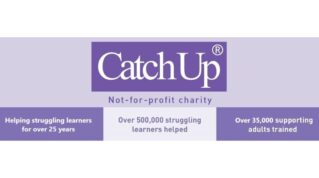This year, children across the country were invited to answer big, burning questions about their perception of the world. The Dreamachine Schools free education programme, for students aged 7 – 11, encouraged them to delve deep inside their minds and stimulate their wildest imaginations.
Dreamachine asked questions aimed to evoke a sense of discovery and curiosity about others, and for students to discover how others feel and experience the world. Students thought about what really matters to them and what they’d choose to find out about others. What teachers discovered was a fascinating glimpse into their unique world.
Igniting wonder in the classroom
Launched during the summer term, primary school aged children across the country – both in school and at home – completed a series of mind boggling challenges as part of Dreamachine’s Life’s Big Questions programme – an interactive quiz hosted by Martin Dougan (CBBC Newsround), exploring the power of the human mind. At the end of every exercise, they were asked a question that prompted them to think big (really big), about the world around them and their connections with others. It gave children the opportunity to voice their opinions, unlock their imaginations and reveal what is important to them.
Enabling children to express themselves supports the development of a stronger sense of self. It is a view shared by Mr Dowell, a class teacher at Chesterton Primary School in Cambridge: “Offering, week after week, the big questions to the children has been a great and creative experience. I have managed to explore their interests further and put answers to many questions they asked. Learning about how the brain works and how different we see the world has raised their empathy and understanding around others.”
Life’s Big Questions is a unique opportunity for children to learn more about the senses, how we see, hear and experience the world around us. Remember #TheDress? In 2015, we were all furiously debating the colour of the Roman Originals dress. Did you see a blue and black stripe dress, blue and brown or gold and white outfit? Life’s Big Questions takes children on a similar journey of knowledge and curiosity.
Created with world leading experts in Neuroscience and Philosophy
Neuroscientist Professor Anil Seth who led the scientific elements of the Dreamachine programme, explained: “We explored a variety of questions about how we perceive the world, how our experiences differ from one another, and we questioned whether the world is always as it appears to be. We looked at a variety of visual illusions which allowed children to experience the power of their own minds directly.”
‘Understanding our perception also helps us to build an understanding in our classrooms that we are all different and unique and that difference of experiences should be appreciated.’ Andria Zafirakou, Teacher and 2018 Global Teacher Prize Winner.
Teachers began the challenge with a straightforward question: if you could see anything in the world, what would it be? Some of the most captivating answers were those where imaginations had flourished; where children described things that are not possible or likely, at least at present: from reading people’s minds to being able to see through objects, from seeing money fall from the sky to seeing a chicken in space. Children touched upon the more philosophical topics, too, such as seeing people differently or seeing oneself as a baby.

If you could ask everyone in the world one big question, what would it be?
The activities conclude with children divulging what big questions they would ask the world. Mrs Duddridge, a year five teacher at Severn Primary, remarked: “My favourite activity was the children discussing the questions they would ask … it was so thought provoking. They came up with really wonderful questions that made me think that I would like to incorporate this with my other lessons.”
Ellie asked If you could only keep one thing on the planet, what would it be?
Abdul wanted to know if new languages were still being invented.
And Aurora wanted to know why we were all different.
Children asked lots of questions about football and food, but also nature, animals and pets. There have been questions about space and time, questioning the unknown, and reflecting on what possibilities might be beyond our knowledge of humanity. And as a possible reflection on our society, there have been lots of references to having money
‘Does money buy happiness?’ but equally, some are clearly thinking about the differences between human life – why are we different, how are we different?
Philosopher on the project Professor Fiona McPherson remarked that “children ask lots of philosophical questions as they discover and explore the world around them.” What has been abundantly clear is that by exploring the power of the brain, Life’s Big Questions has ignited curiosity and imagination in the minds of children across the country about the world and themselves.
For more information about Dreamachine’s Life’s Big Questions programme and to involve your class or child at home, please visit lbq.dreamachine.world.
FREE accredited lesson plans
Delve further into the incredible potential of the human brain with Dreamachine’s FREE lesson plans, exploring the power of the human mind, our amazing brains and the big questions of perception and consciousness – our sense of self, how we see the world and how we connect with others. Explore over 30 lesson plans for students (ages 5-13), that offer a variety of exciting ways for schools to engage with important themes such as wellbeing, citizenship and STEAM subjects. All resources are linked to curricula across England, Scotland, Wales and Northern Ireland.
Life’s Big Questions has been developed with A New Direction, We The Curious and in collaboration with Professor Anil Seth, Neuroscientist at University of Sussex and Professor Fiona Macpherson from University of Glasgow. It is part of the Dreamachine Schools programme, a major programme developed by Collective Act with A New Direction, in partnership with the British Science Association and UNICEF UK, and commissioned as part of UNBOXED: Creativity in the UK.
















Your thoughts